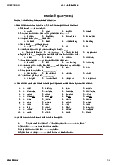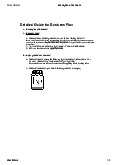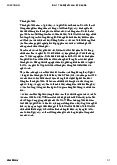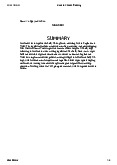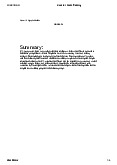


Preview text:
19:38 10/8/24 Implicatures in the Ielts Test
Research Question:
Analyzing Implicatures in IELTS Tests: How do implicatures contribute to
the difficulty level of various question types within the IELTS test? I. Introduction
A. Background of the IELTS test and its importance
B. Definition of implicatures and their relevance in language comprehension
C. Overview of the research question: How do implicatures contribute to the
difficulty level of various question types within the IELTS test?
D. Purpose and scope of the research paper II. Literature Review
A. Overview of implicatures in linguistic theory
B. Previous studies on implicatures in language testing and assessment
C. Types of questions in the IELTS test and their characteristics
D. Examination of how implicatures impact the difficulty level of different
question types in the IELTS test III. Theoretical Framework
A. Gricean maxims and implicature theory
B. Application of implicature theory to language testing
C. The role of implicatures in enhancing comprehension and communication
D. Hypotheses regarding how implicatures contribute to the difficulty level of
various question types in the IELTS test IV. Methodology
A. Research design: mixed methods approach (qualitative analysis of test
materials and quantitative analysis of test scores) about:blank 1/3 19:38 10/8/24 Implicatures in the Ielts Test
B. Selection of participants: IELTS test takers from diverse linguistic backgrounds
C. Data collection methods: analysis of IELTS test materials, surveys or
interviews with test takers, statistical analysis of test scores
D. Data analysis techniques: thematic analysis, statistical analysis (ANOVA, regression analysis, etc.)
V. Implicatures and Question Types in the IELTS Test
A. Overview of question types in the IELTS test (multiple choice,
true/false/not given, matching, summary completion, sentence completion, note completion, diagram labeling)
B. Examination of how implicatures contribute to the difficulty level of each question type
C. Analysis of specific examples of implicatures in IELTS test materials and
their impact on question difficulty VI. Findings and Discussion
A. Identification of implicatures in IELTS test materials
B. Analysis of how implicatures contribute to the difficulty level of various question types
C. Comparison of implicature effects across different question types and proficiency levels
D. Implications of implicature analysis for test design, scoring, and preparation
VII. Implications for Language Testing and Teaching
A. Recommendations for addressing implicatures in language testing and assessment
B. Strategies for test takers to improve implicature analysis skills
C. Integration of implicature analysis into language teaching and test preparation curricula about:blank 2/3 19:38 10/8/24 Implicatures in the Ielts Test
VIII. Challenges and Future Directions
A. Challenges in incorporating implicature analysis into language testing and research
B. Potential areas for further research on implicatures and question difficulty in language testing
C. Recommendations for future studies to advance understanding in this area IX. Conclusion
A. Summary of key findings regarding the contribution of implicatures to
question difficulty in the IELTS test
B. Reflection on the significance of implicature analysis for language testing and research
C. Final thoughts on implications for practice and future research directions X. References about:blank 3/3
